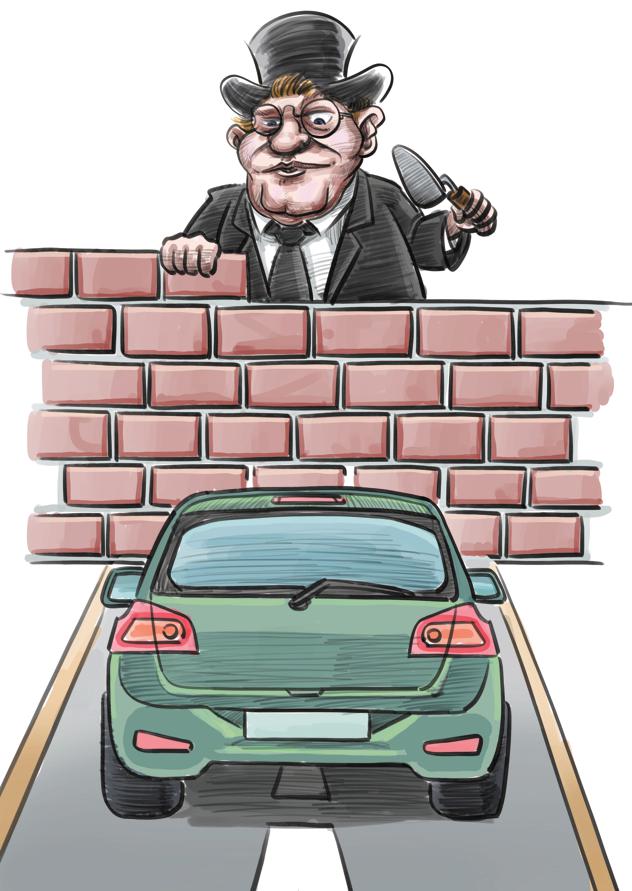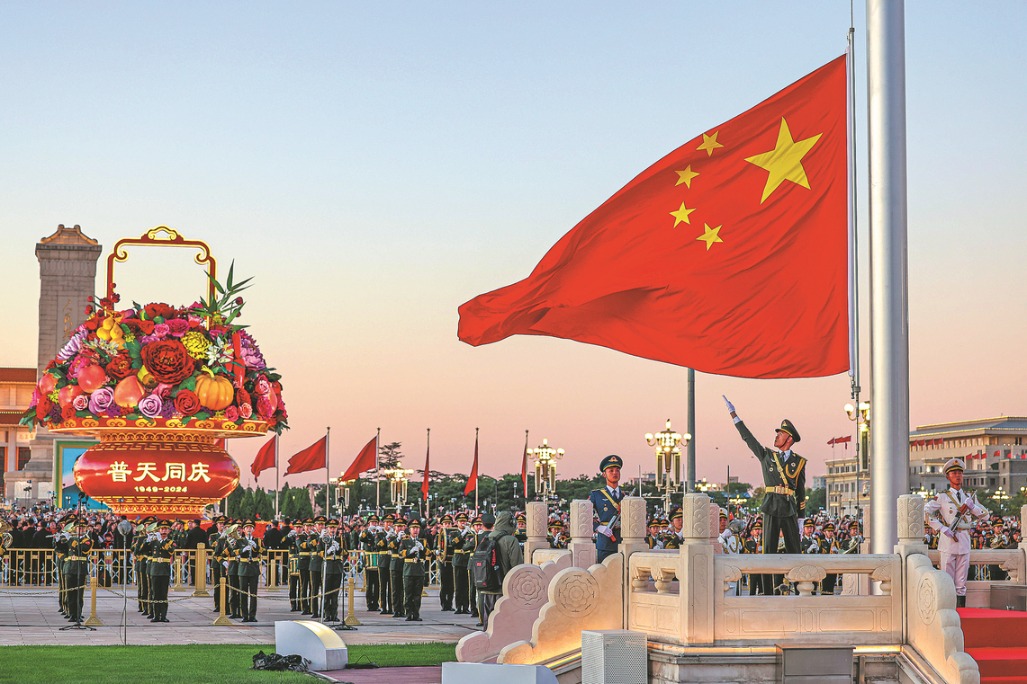Protectionist measures could backfire on EU carmakers


Major Western economies are engaged in a race to hinder China's exports. After sanctioning Chinese telecommunications conglomerate Huawei, and restricting the imports of Chinese-made batteries, steel and critical minerals, the United States and the European Union have announced tariffs of up to 100 percent and 38.1 percent, respectively, on electric vehicles (EVs) imported from China.
The core argument of the US and the EU for imposing the tariffs is that EV-makers in China benefit heavily from government subsidies, and China's overcapacity in EV batteries is the result of the Chinese government's industrial policy and subsidies.
The protectionist path chosen by the Joe Biden administration was laid by the Donald Trump administration and threatens to drastically slow the growth of global trade and the development of global value chains, affecting the international division of labor. This will impinge on the likely advantages of fair competition and free market on which Western economic theories rest.
In such a situation, China is bound to take countermeasures. But even if it doesn't, the Western economies' protectionist measures against Chinese exports will hurt Western companies which have manufacturing units in and export their products from China. Highlighting this fact recently, German Chancellor Olaf Scholz said half of the EVs imported from China are manufactured by Western companies.
As a matter of fact, no less than German Transportation Minister Volker Wissing expressed concerns over the tariffs, saying the EU's move will deal a blow to German companies and their products, adding that cars must become cheaper through more competition, open markets and significantly better business conditions in the EU, not through trade war and market isolation. Several German carmakers, including Mercedes-Benz and Volkswagen, too, have spoken against the tariffs.
And the president of the German Association of Automotive Industry (VDA), Hildegard Muller, has said tariffs will not solve the problems facing the auto industry, stressing that instead of imposing tariffs, efforts should focus on making the EU more attractive for manufacturers.
Given its economic strength, China can disrupt the free flow of global trade in ways that would hurt Western carmakers. But it won't do so because that could lead to a full-fledged trade war, which incidentally some Western leaders want as it would help them decouple their countries' economies with China's, resulting in losses for all economies, including the US, the EU, Japan and China.
The West has adhered to the theory of comparative advantage with almost religious zeal since British economist David Ricardo propounded it in 1817. The theory is at the heart of the aspirations that, for instance, shape the rules advocated by the World Trade Organization, which until recently was strongly supported by the Western economies. But now that the comparative advantages have shifted eastward, the Western economies are out to defy the theory.
The question that arises is: Which economies would be the losers and which the winners if all economies resorted to protectionism? Before that question is answered, it ought to be mentioned that the US has made strenuous efforts to unify the Western economies against a supposed "common enemy", in order to maintain its global hegemony. But this strategy has almost never proved successful. What would happen in a hypothetical situation of the US succeeding in containing China? Without a perceived common enemy, the Western economies most probably would be locked in fierce competitions, leading to fierce trade wars.
To know which economies would end up as the losers and which the winners, we need to know which economies have a market large enough to achieve a high rate of growth, excel in competition and benefit from the international division of labor so as to compensate, even if partly, for the de-globalization of the world economy.
China has a massive and still growing domestic market. It has a high rate of savings and investment. It has demonstrated capability to further enhance R&D, realize technological diversification, and boost its national strength. These factors place China in a relatively advantageous position to minimize the negative impact of a world without free and fair global trade.
China wants to prevent the global economies from engaging in a protectionist war. But to at least win the intellectual debate on the issue, the Chinese government ought to take the initiative to resolve the issue. Asking the relevant questions is one way of showing that the core reason behind the current situation is that China's companies are more efficient and competitive than their Western counterparts in most fields.
Further proof of Western hypocrisy can be found in their agricultural policy. The agricultural sector in both the US and the EU is heavily subsidized — by tens of billions of dollars a year. The two economies also impose punitive tariffs on imports from quite a few countries.
For instance, the EU imposes a heavy tariff on imported bananas to protect uncompetitive farmers from the Canary Islands. The EU cannot justify imposing the tariffs on farm produce from countries such as Costa Rica, Ecuador and Honduras, because banana producers in those countries do not get any subsidies. The only reason why the EU imposes tariffs on banana imports is that banana producers in the EU cannot compete with their Latin American counterparts.
In short, the tariffs imposed by the EU and the US on Chinese-made EVs are a means to protect their domestic car industry from the more competitive Chinese carmakers. In the eyes of the EU and the US, China's sin is not that it has robust industrial policy, but because it exhibits a high degree of efficiency and competitiveness.
The author is a professor at Instituto Empresarial University in Spain, a senior fellow at the Beijing Club for International Dialogue and was special adviser to the president of Costa Rica from 2018-2022. The views don't necessarily represent those of China Daily.
The views don't necessarily reflect those of China Daily.
If you have a specific expertise, or would like to share your thought about our stories, then send us your writings at opinion@chinadaily.com.cn, and comment@chinadaily.com.cn.
































